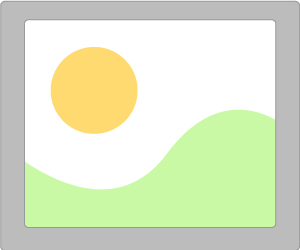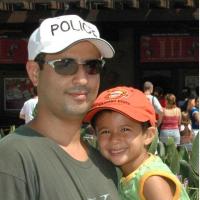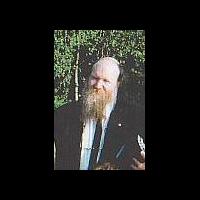Žinutės: 13
Kalba: العربية
beurre_cru (Rodyti profilį) 2014 m. spalis 17 d. 10:19:02
Sorry for not writing in Arabic. That is because I only just decided I would like to learn Arabic

Could you please recommend any sources for learning? I am an absolute beginner. I can say "Thank you" and "Hello", that's it. I found something on memrise.com for learning the alphabet. But what else would be good?
My native language is German.
Thank you in advance for any notes.
Diana
Saluton kaj Salam
Pardonu por ne skribi en la araba. Tio estas ĉar mi ĵus decidis ke mi volas lerni araba

Ĉu vi bonvole rekomendas ajnan fontoj por lerni? Mi estas absoluta komencanto. Mi povas diri "Dankon" kaj "Saluton", tio estas ĝi. Mi trovis ion sur memrise.com por lerni la alfabeton. Sed kion alie estus bona?
Mia denaska lingvo estas la germana.
Dankon anticipe por ajna notoj.
Diana
Simon_Gauvain (Rodyti profilį) 2014 m. spalis 17 d. 11:56:28
Mi foje ekuzis lernolibron kiu plaĉis al mi. Ĝi instruas ne nur la alfabeton, sed ankaŭ nociojn kiel skribmaniero kaj prononco (nur baze, estas por komencantoj).
Ĉe Amazon
Ene troviĝas koncizaj tabeloj kiel ekzemple tiu ĉi : (la maldekstra kolumno montras kiel skribi mane)

Bedaŭrinde ĝi ekzistas nur en la franca. Eble ekzistas aliaj samkvatitaj libroj en la angla aŭ germana.
Teapot (Rodyti profilį) 2014 m. spalis 17 d. 12:28:48
If in doubt I would personally choose Egyptian Arabic because it's the most widely understood due in part to the film industry there if I recall correctly.
Good luck!
beurre_cru (Rodyti profilį) 2014 m. spalis 17 d. 16:27:56
Simon_Gauvain:Saluton,Dankon. Jes, la principo de via libro aspektas bona. Bedaŭrinde mia franca ne estas sufiĉe bona
Mi foje ekuzis lernolibron kiu plaĉis al mi. Ĝi instruas ne nur la alfabeton, sed ankaŭ nociojn kiel skribmaniero kaj prononco (nur baze, estas por komencantoj).
Ĉe Amazon
Ene troviĝas koncizaj tabeloj kiel ekzemple tiu ĉi : (la maldekstra kolumno montras kiel skribi mane)
Bedaŭrinde ĝi ekzistas nur en la franca. Eble ekzistas aliaj samkvatitaj libroj en la angla aŭ germana.
 - tio estus la proksima projekto! Sed mi serĉas ion similan.
- tio estus la proksima projekto! Sed mi serĉas ion similan.Tie ŝajnas esti multaj libroj / afiŝantoj por infanoj. Eble mi provos. Ĉiuokaze, dankon!
beurre_cru (Rodyti profilį) 2014 m. spalis 17 d. 16:29:13
Teapot:I was interested in learning Arabic myself before learning that it is in fact a family of mutually unintelligible languages and that Modern Standard Arabic is not widely understood nor suitable for day to day use. Basically it's considered one language for political reasons and you have to decide which language or "dialect" you want to learn.Thank you for the good wishes
If in doubt I would personally choose Egyptian Arabic because it's the most widely understood due in part to the film industry there if I recall correctly.
Good luck!

beurre_cru (Rodyti profilį) 2014 m. spalis 30 d. 08:47:18
La instruisto povas rekomendi libron.
Se iu scias de bona interreto rimedoj, mi estas ĉiam dankema

Bonan tagon al vi
Diana
dossary (Rodyti profilį) 2014 m. lapkritis 3 d. 07:28:23
Teapot:I was interested in learning Arabic myself before learning that it is in fact a family of mutually unintelligible languages and that Modern Standard Arabic is not widely understood nor suitable for day to day use. Basically it's considered one language for political reasons and you have to decide which language or "dialect" you want to learn.I dont know who told you that, but maybe whoever had political reasons (Anti-Arabism?).
If in doubt I would personally choose Egyptian Arabic because it's the most widely understood due in part to the film industry there if I recall correctly.
Good luck!
True, Arabs speak many dialects. Even small countries speak differently from region to region. But they are all fairly intelligible, except for Moroccan and Algerian varieties, but that is because they use so many french words. Thus it is a slang problem not necessarily a dialect problem. But most importantly, since non of the dialects are standardized or taught anywhere, they are spoken slightly different from one person to another, and with each passing year they seem to draw closer to Modern Standard Arabic (MSA). MSA is the direct updated descendant of Medieval Arabic (which is similar to Quranic Arabic), and is the official language in all Arab countries and the only language used for publication. That is the dialects are only spoken not written.
As for MSA not being widely understood, that is a 100% false statement. It is by far the most widely understood of all forms of Arabic. MSA is the language every Arab student studies from Kindergarden. Most of the time Arabs of differnet nationalities code switch between their local dialect and MSA to be better understood.
The Cairene dialect is certainly as you said widely understood. But other the chatting with Arabs or watching Egyptian shows and films, it is of limited use. Every book, newspaper, article etc... published in Egypt is in MSA. Additionally other than booklets for tourists that teach simple phrases in Egyptian or Levatine Arabic (usually what constitutes these two dialects is left to the discretion of the author), I havent seen any serious book teaching these two dialects.
Just my view for those interested in Arabic.
dossary (Rodyti profilį) 2014 m. lapkritis 3 d. 07:36:33
beurre_cru:Kia fortuno! En nia universitato, mi trovis araba kurso kaj hieraŭ estis la unua parto. Mi lernas la ABC... poste pli...It is good that you found a course locally. Unfortunately not many resources are available on the net. Just books that you can download.
La instruisto povas rekomendi libron.
Se iu scias de bona interreto rimedoj, mi estas ĉiam dankema
Bonan tagon al vi
Diana
the view has always been that Arabic study material is geared toward 1- Arabs who want study/improve their language. 2- Non-Arab Muslims who want to pursue Islamic studies. Therefore the material they study from is very much outdated and very religious.
Incidently, other than learning new alphabet and new sounds, Arabic is quite easy in the beginning. It has more logical sentence structure and much less verb tenses than European languages. But to reach proficiency, you need to learn noun and verb cases. And that is something most Arabs struggle with.
tonymec (Rodyti profilį) 2014 m. lapkritis 3 d. 10:00:06
beurre_cru:Hello and SalamWa`alajki-ssalaamu wa raḥmatu-llaahi.
Sorry for not writing in Arabic. That is because I only just decided I would like to learn Arabic
Could you please recommend any sources for learning? I am an absolute beginner. I can say "Thank you" and "Hello", that's it. I found something on memrise.com for learning the alphabet. But what else would be good?
My native language is German.
Thank you in advance for any notes.
Diana
Saluton kaj Salam
Pardonu por ne skribi en la araba. Tio estas ĉar mi ĵus decidis ke mi volas lerni araba
Ĉu vi bonvole rekomendas ajnan fontoj por lerni? Mi estas absoluta komencanto. Mi povas diri "Dankon" kaj "Saluton", tio estas ĝi. Mi trovis ion sur memrise.com por lerni la alfabeton. Sed kion alie estus bona?
Mia denaska lingvo estas la germana.
Dankon anticipe por ajna notoj.
Diana
Classical (Koranic) Arabic, or colloquial (spoken) Arabic, and in the latter case, of which geographical area? From Morocco to Iraq (and with everywhere in between), there are lots of differences.
Depending on in (or near) which city you live, you might find various kinds of teaching materials in “language bookshops”.
Ĉu klasika (korana) araba, aŭ komunuza (parolata) araba; kaj se tiu lasta, de kie? De Maroko al Irako (kun ĉie inter ili) estas multe da diferencoj.
Depende en (aŭ ĉe) kiu urbo vi loĝas, eble vi povus trovi diversspecajn instruilojn en “lingvaj librovendejoj”.
tonymec (Rodyti profilį) 2014 m. lapkritis 3 d. 10:13:10
dossary:[...] Additionally other than booklets for tourists that teach simple phrases in Egyptian or Levatine Arabic (usually what constitutes these two dialects is left to the discretion of the author), I havent seen any serious book teaching these two dialects.IIRC, “Colloquial Arabic”, in the Teach Yourself series, is about Egyptian Arabic. I would call it “serious”. It has the originality of using a variant of the Latin alphabet to represent Arabic, while in the same series, “[Teach Yourself] Arabic”, which IIUC is about classical Arabic, uses pointed Arabic script, including case-endings, waṣla and everything.
Just my view for those interested in Arabic.



